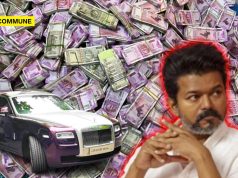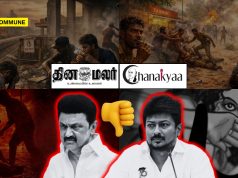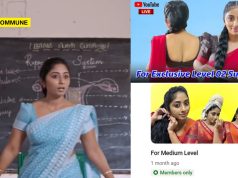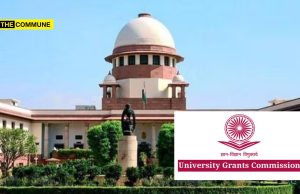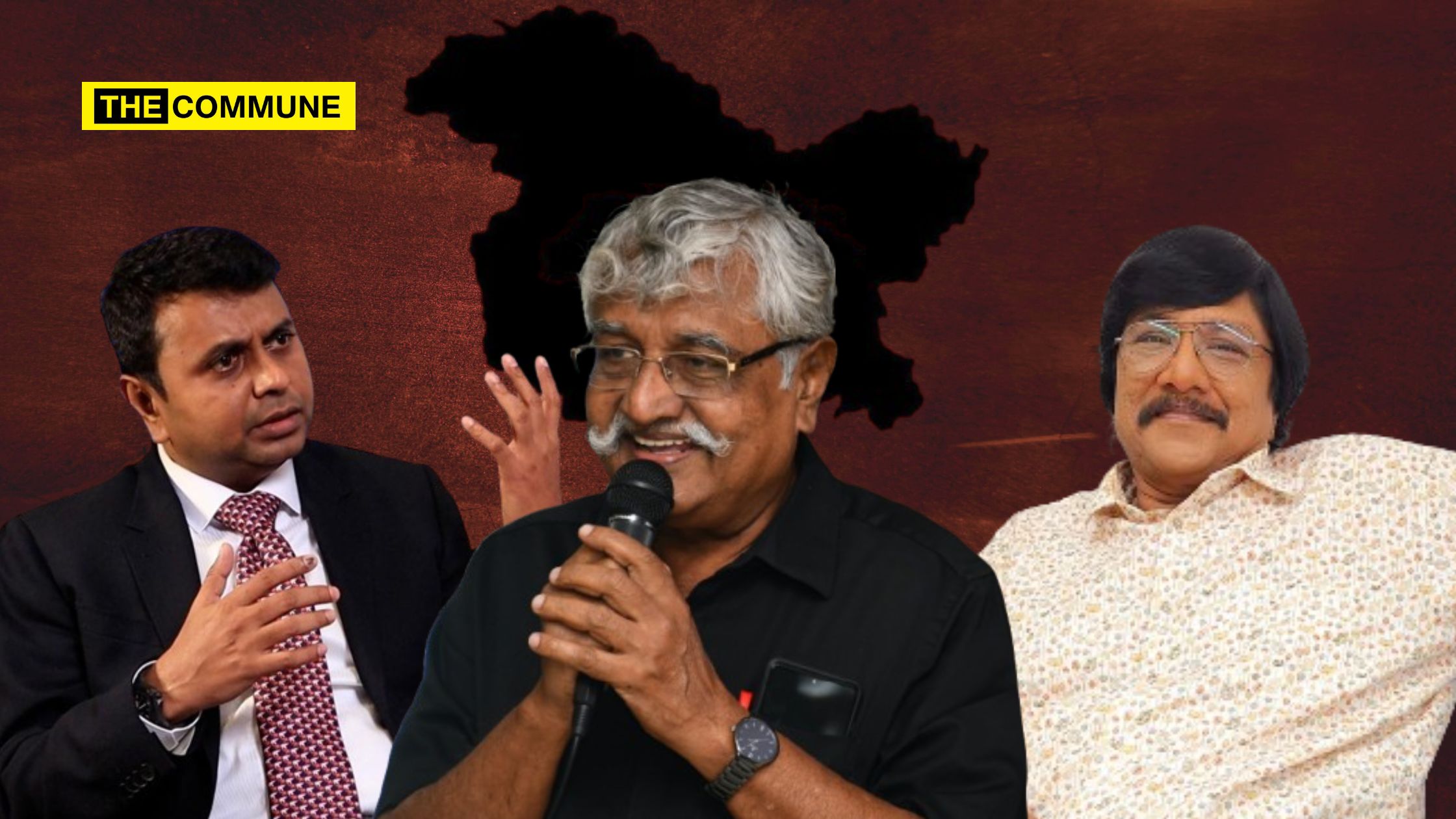
Regardless of which party is in power, the central government, citizens, and armed forces of India have consistently and firmly upheld the belief that “Kashmir is, and will always remain, an integral part of India.” Many still aspire to see the day when territories of Jammu and Kashmir currently under illegal occupation by Pakistan and China are rightfully reclaimed.
However, in stark contrast, certain political voices in Tamil Nadu—particularly from the Dravidianist and Periyarists, as well as the Congress-led I.N.D.I alliance partner DMK—appear to follow a different narrative. At times, their rhetoric has surprisingly aligned with Pakistan’s stance on Kashmir, raising eyebrows across the country. These positions have not only been expressed in public forums but also openly pushed during television debates, creating significant controversy.
Below are notable instances where leaders and spokespersons from the Dravidianist, Periyarist, and Congress-I.N.D.I allies —especially those associated with the DMK—have made statements that seemingly echo or support Pakistan’s viewpoint on Jammu and Kashmir.
When DK Leader Suba Veerapandian Peddled Hate-Filled Rant Comparing Modi Govt to Hitler, Alleged Ethnic Cleansing Of Kashmiri Muslims
In a highly charged and controversial speech, Suba Veerapandian, General Secretary of the Dravida Iyakka Tamilar Peravai, accused the central government of authoritarianism and alleged communal targeting, drawing parallels between Prime Minister Narendra Modi and Adolf Hitler.
He said, “Some ask how Modi can be called authoritarian when he came to power through elections. Hitler too came to power in 1933 through elections. By 1934, he had declared himself a dictator. At least Hitler took a year — but for Modi just three months is enough. We strongly condemn this as it goes toward authoritarianism. As we’ve said, ‘The people of Kashmir are our people. The blood of Kashmir is Tamil blood. Tamils will always stand by justice, with anyone.’”
Continuing his address, Veerapandian added, “Today, Kashmir is surrounded by the army. Communication have been severed. Former Chief Ministers are under arrest. We don’t know what will happen next, and many fear what’s to come. Friends, Just as Hitler aimed to wipe out the Jewish race, this government under Modi and Amit Shah has taken its first step toward the total destruction of Muslims. Note, this is only the first step. After destroying the Muslims, If their objective includes targeting other minorities, suppressing communists, and dividing the people along caste lines, and giving the nation only to Brahmins then let it be known—this nation will resist with everything it has, till it’s last breath.”
The speech has drawn widespread criticism online, with many accusing Veerapandian of fear-mongering and inflammatory rhetoric.
Imran Khan's tweet repeated exactly word for word by DMK, this is the reason why DMK must go. Hope .@NIA_India takes note of this hate propaganda by DMK stooges. pic.twitter.com/9knuzQEJYx
— Vishwatma 🇮🇳 ( மோடியின் குடும்பம் ) (@HLKodo) August 15, 2019
When DMK Spokesperson Saravanan Annadurai Said “Kashmir Was Never Integral Part Of India”
During a debate on Republic TV aired on 12 August 2019, DMK spokesperson Saravanan Annadurai stirred controversy by stating, “Kashmir was never an integral part of India.” The discussion, hosted by Editor-in-Chief Arnab Goswami, centered around the abrogation of Article 370. Saravanan made the remark while defending DMK’s ally, the Congress party, against accusations of communalizing the Kashmir issue.
He also criticized the BJP-led central government, calling it “fascist” and accusing it of bypassing public consensus in its handling of the Kashmir matter. His comments were challenged by BJP representative Aman Sinha, who maintained that Jammu and Kashmir was unified with India and the recent changes were merely a constitutional reorganization. Saravanan responded, “That is your dream. Kashmir was never an integral part of India,” escalating the tension on the show.
Moments after Saravanan made his contentious remark regarding Jammu and Kashmir during the debate, anchor Arnab Goswami reacted sharply, turning the spotlight on DMK leader M.K. Stalin. Calling out the party chief directly, Arnab questioned whether Stalin endorsed his spokesperson’s statement that “Jammu and Kashmir is not an integral part of India.”
He went on to accuse Saravanan of challenging the nation’s sovereignty and demanded a clear response from the DMK leadership. “Mr. Stalin, does your party share this view? The country deserves to know your stand. If your party believes J&K is not an integral part of India, then you have no place in national politics,” Arnab declared. He further suggested that if such views persist, the DMK should be de-recognized by the Election Commission, warning that this could pave the way for more divisive or secessionist rhetoric in the future.
DMK actually a third rate party filled with anti nationals and traitors, here the party spokesperson in a national news channel conveying it's partly stand that kashmir is not an integral part of India pic.twitter.com/0miTuxg7Xd
— Vishwatma 🇮🇳 ( மோடியின் குடும்பம் ) (@HLKodo) January 9, 2020
Following public backlash and rising controversy, Saravanan later clarified that his comments were his personal opinion and not reflective of the DMK’s official stance. In a statement issued through the party, he asserted that he did not make any remark undermining the country’s integrity. He explained that his statement referred to the historical context of Kashmir’s integration, noting that the region formally became part of India in 1956 through an agreement with then-Maharaja Hari Singh.
Saravanan also expressed frustration that he was not given an opportunity to fully explain himself during the noisy debate, saying his remarks were taken out of context. Despite a moment when Arnab offered a chance to clarify his position, Saravanan exited the program, prompting the anchor to accuse him of “running away” and publicly challenge DMK leader M.K. Stalin to declare the party’s stance on Kashmir.
As the debate clip circulated widely on social media, speculation intensified, with some reports even suggesting a possible probe by the National Investigation Agency (NIA). In response, the DMK released an official statement reiterating that Saravanan did not question India’s sovereignty and that the interpretation of his remarks had been misrepresented in the chaotic environment of the live broadcast.
When DMK Spokesperson Manushya Puthiran Blames Army Presence for Rise in Terrorism in Kashmir
S. Abdul Hameed, popularly known by his pen name Manushya Puthiran and a spokesperson for the DMK, stirred controversy during a segment on Kalaignar News, where he made contentious remarks linking military presence to the growth of terrorism in Kashmir. He suggested that the army’s role in the region is counterproductive and could fuel radicalization.
He said, “Terrorism often takes root when there is internal contradictions especially when certain regions are treated unfairly, denied of justice. In Kashmir, the locals are threatened significantly through army. These can create sympathy for terrorist among the local population. In such situation, the affected region should be freed from military restrictions, but they believe by increasing military action will suppress terrorism. The problem is history from various countries shows that when military force is used excessively among people, it often creates a situation where extremists make a connection with the local population.”
He didn’t stop at Kashmir. He went on to link the government’s treatment of marginalized communities to the rise of Naxalism, “Take the Naxalite issue, for instance. When the government continuously mistreats tribal communities, Adivasis, and landless people, they are left with no alternative but to gravitate toward supporting extremists’ mentality. This was the major factor behind the spread of Naxalism in several states.”
DMK Justifies terrorists.
DMK Supports terrorists.
DMK backs terrorists. pic.twitter.com/F0nFEAwkbD— Vishwatma 🇮🇳 ( மோடியின் குடும்பம் ) (@HLKodo) February 16, 2019
His statements have drawn strong criticism online and from political opponents, who accuse him of justifying extremist violence and undermining national security forces.
Subscribe to our channels on Telegram, WhatsApp, and Instagram and get the best stories of the day delivered to you personally.

